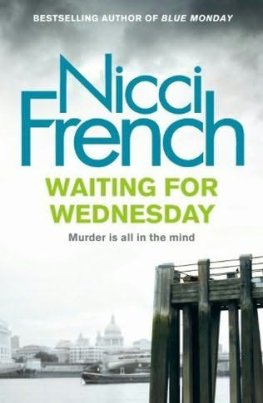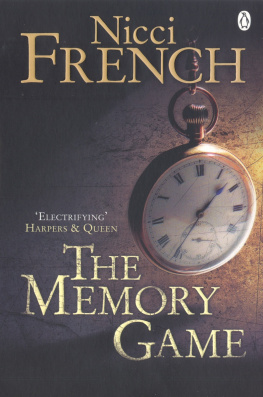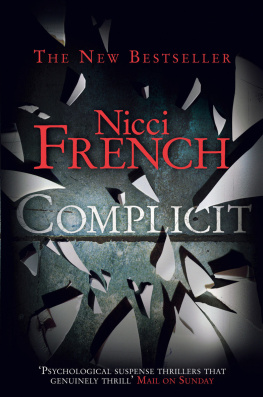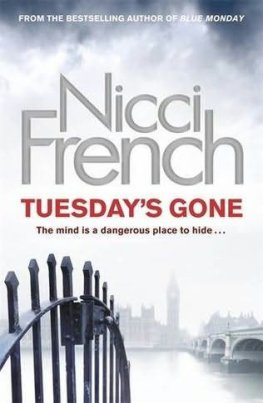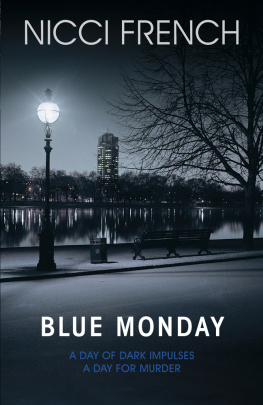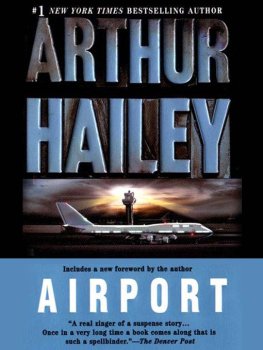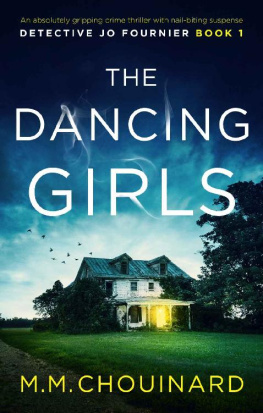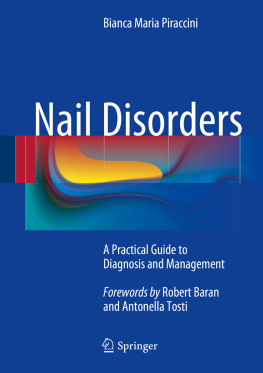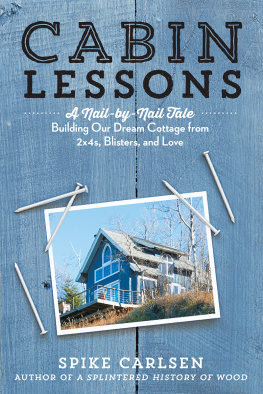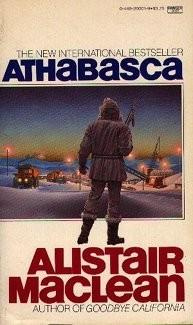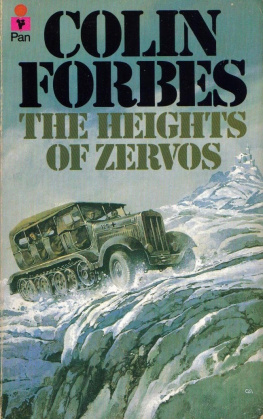Killing Me Softly by Nicci French
Nicci French is the pseudonym for the writing partnership of journalists Nicci Gerrard and Sean French. The couple are married and live in Suffolk.
There are now ten bestselling novels by Nicci French: The Memory Game, The Safe House, Killing Me Softly, Beneath the Skin, The Red Room, Land of the Living, Secret Smile, Catch Me When I Fall, Losing You and Until Its Over (the new hardback, published in May 2008).
Killing Me Softly
Nicci French

PENGUIN BOOKS
PENGUIN BOOKS
Published by the Penguin Group
Penguin Books Ltd, 80 Strand, London WC2R ORL, England
Penguin Group (USA) Inc., 375 Hudson Street, New York, New York 10014, USA
Penguin Group (Canada), 90 Eglinton Avenue East, Suite 700, Toronto, Ontario, Canada M4P 2Y3
(a division of Pearson Penguin Canada Inc.)
Penguin Ireland, 25 St Stephens Green, Dublin 2, Ireland (a division of Penguin Books Ltd)
Penguin Group (Australia), 250 Camberwell Road, Camberwell,
Victoria 3124, Australia (a division of Pearson Australia Group Pty Ltd)
Penguin Books India Pvt Ltd, 11 Community Centre,
Panchsheel Park, New Delhi 110 017, India
Penguin Group (NZ), 67 Apollo Drive, Rosedale, North Shore 0632, New Zealand
(a division of Pearson New Zealand Ltd)
Penguin Books (South Africa) (Pty) Ltd, 24 Sturdee Avenue,
Rosebank, Johannesburg 2196, South Africa
Penguin Books Ltd, Registered Offices: 80 Strand, London WC2R ORL, England
www.penguin.com
First published by Michael Joseph 1999
First published in Penguin Books 2000
This edition published 2008
1
Copyright Joined-Up Writing, 1999
All rights reserved
The moral right of the author has been asserted
Except in the United States of America, this book is sold subject to the condition that it shall not, by way of trade or otherwise, be lent, re-sold, hired out, or otherwise circulated without the publishers prior consent in any form of binding or cover other than that in which it is published and without a similar condition including this condition being imposed on the subsequent purchaser
978-0-14-192366-6
He knew he was going to die. And he knew dimly, somewhere far inside himself, that he ought not to want to die. He should do something to save himself but he couldnt think what. Perhaps if he could make sense of what had happened. If only the wind and the snow would slacken. They had battered him for so long that he could hardly distinguish the sound from the cold and the stinging on his face. Always there was the struggle, the last struggle, really, to breathe oxygen from this air of eight thousand metres above sea-level, where humans werent meant to live. His oxygen cylinders were long since empty, the valves frozen up, the mask nothing but an encumbrance.
It might be minutes, more likely hours. But he would be dead before the morning came. That was all right, though. He was drowsy and calm. Under his layers of windproof nylon, Gore-Tex, wool, polypropylene, he could feel his heart beating at twice its normal rate, a prisoner hammering frantically at his chest. Yet his brain was sluggish, dreamy. Which was a mistake, because they all needed to stay awake, keep moving, until they were rescued. He knew he should sit up, stand up, clap his hands together furiously, wake his companions. He was too comfortable. It was good to lie down and rest at last. He had been tired for such a long time.
He no longer felt cold, which was a relief. He looked down to where one of his hands, which had slipped from its mitten, lay at a curious angle. It had been purple but now he leaned forward curiously it was a waxy white. Strange that he should be so thirsty. He had a bottle in his jacket, which was frozen and useless to him. He was surrounded by snow, which was equally useless. It was almost funny. Lucky he wasnt a doctor, like Franoise.
Where was she? When they had reached the end of the line, they should have been in the Camp Three col. She had gone ahead and they hadnt seen her again. The others had stayed together, blundered around, lost all sense of direction, any feeling about where on the mountain they were, and had nestled hopelessly into this excuse for a gully. And yet there was something he had to remember, an object lost in his mind, and not only did he not know where it was, he didnt know what it was.
He couldnt even see his feet. This morning, when they had set out, the mountains had shimmered in the thin air and they had inched their way up the tilted sea of ice towards the summit in fierce sunlight that had spilt over the rim of the mountains, and glinted off the blue-white, bullet-proof ice and pierced their aching heads. There had been only a few cumulus clouds drifting towards them and then suddenly this swirl of stony snow.
He felt a movement beside him. Someone else was conscious. He turned laboriously to the other side. Red jacket, so it must be Peter. His face was entirely obscured by a thick layer of grey ice. There was nothing he could do. They had been a sort of team but were all in their own separate worlds now.
He wondered who else was dying on the mountainside. It had all gone so wrong. Nothing to do, though. He had a syringe in a toothbrush holder inside his snowsuit, full of dexamethosone, but grasping a syringe was beyond his powers now. He couldnt even move his hands to unstrap his backpack. What would he do, anyway? Where could he go from here? Better to wait. Theyd find them. They knew where they were. Why hadnt they come yet?
The world beyond, the life before, these mountains, all that had now sunk beneath the surface of his sluggish consciousness, until only traces were left. He knew that every minute he lay up here, in the oxygen-deprived death zone, millions of his brain cells were being erased. A tiny part of his mind was watching himself die and was terrified, full of pity and horror. He wished it was over. He just wanted to sleep.
He knew the stages of death. He had watched almost with curiosity as his body protested against its environment here on the final ridges below the summit of Chungawat: the headaches, the diarrhoea, the gasping shortness of breath, the swollen hands and ankles. He knew he could no longer think clearly. Perhaps hallucinations would come to him before he died. He knew that frostbite had invaded his hands and feet. He couldnt feel any of his body, except for his charred lungs. It was as if his mind was the last thing that was left, still burning dimly inside his finished carcass. He was waiting for his mind to flicker and die out.
Pity he had never got to the summit. The snow felt like a pillow against his cheek. Tomas was warm. At peace. What had gone wrong? It should all have been so simple. There was something he had to remember, something wrong. There had been a wrong note. A piece of the puzzle didnt fit. He closed his eyes. The darkness felt healing. Life had been so busy. All that effort. For what? Nothing. He just had to remember. Once he had remembered, nothing else mattered. If only the howl of the wind would stop. If only he could think. Yes, that was it. It was so stupid, so simple, but he understood. He smiled. He felt the cold spread through him, welcoming him into the darkness.
I sat very still in the hard-backed chair. My throat hurt. The strip-lighting flickered and made me feel dizzy. I put my hands on the desk between us, fingertips lightly together, and tried to breathe steadily. What a place for it all to end.
Phones were ringing around us and conversation hummed in the air, like static. There were people in the background, men and women in their uniforms passing busily by. Occasionally they would look towards us, but they didnt seem curious. Why should they be? They saw so many things in here, and I was just an ordinary woman, with a flush in her cheeks and a ladder running up her tights. Who could tell? My feet ached inside their ridiculous ankle boots. I didnt want to die.



